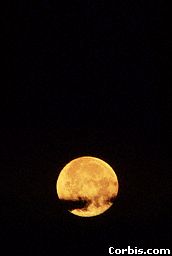a.k.a. Winnifred Kingdon-Ward,
Biography and homepage.
Her christened name was Winifred Mary Ward but her famous brother ran his middle name Kingdon into his surname thus making Kingdon-Ward. Because she was Frank Kingdon-Ward's sister she became known as Winifred Kingdon-Ward and accepted this handle, probably willingly, as she very much adored her brother.
She wrote a great deal. Much of which was never published. A long (and possibly long winded) biography of her brother Frank Kingdon-Ward was rejected numerous times but formed a large part of the research material for Charles Lyte's later biography "Last of the great plant hunters" and indeed for my own biography on the web. WKW kept things. I mean she really KEPT THINGS. On her death we found boxes piled to the ceiling in many of the rooms of her large terraced house. In some were things like an envelope marked 'empty envelopes' which contained, yes a load of empty, used, envelopes folded up to fit inside. She was not the same woman who had a box marked "bits of string too short to be of any use" but she might have been. I am still going through files which contain nothing but newspaper cuttings of stuff like recipes or interesting(?) articles.
However she also kept some things which were interesting. She felt, as I think many did in those days, that they all owed a great debt of gratitute to the men who fought and died for their freedom. I found a cartoon from a newspaper depicting a soldier representing britain with the caption "very well then alone" I have it framed on our wall and for me it is a reminder of what happened and that it should never happen again and it is also a motivator to me that my problems will never be as great as those of all people during the war.


If there is any problem with copywrite I will apologise and remove them imediately.
The fairies are chasing a mouse Yo- ho!
He's burgled a fairy's house Yo-ho!
He got at the pie and he gnawed at the cheese,
He nibbled the pumpkin and gobbled the peas,
And now he's so fat that he can't even sneeze
Ho-ho yo hobblety ho!
He's galloping over the hill Yo-ho!
And round by the old grey mill yo-ho!
The fairies are tumbling over each other,
Aunt and uncle and sister and brother,
Great aunt, great uncle, grandfather, grandmother,
Ho-ho yo hobblety ho!
The mouse is away from them all yo-ho,
And over the garden wall Yo-ho,
And though they're chasing him into next week,
And telling him just what they think of his cheek,
They havn't so much as caught up with his squeek,
Ho-ho yo hobblety ho yo ho!
ho-ho yo hobblety ho!

Mother is that the Eiffel tower,
standing up there so high?
and why is it wearing earrings?
oh mother tell me why.
That's not the Eiffel tower, my child,
the patient parent said;
it brings us our electric light,
to light you up to bed.
I don't know why it has earrings,
it's part of it's works no doubt,
(you must ask the electricity man)
but it wouldn't look right without.
The Eiffel tower's in Paris,
and we're in England now,
and if you keep asking questions,
there's sure to be a row,
But mother why is it in Paris?
Because someone built it there,
and if you ask one more question
(she said with a dreadful glare)
well... you ask it if you dare...

And oh so pleasant to eat,
We can't get hold of our noses,
So we has to make do with our feet.
If ever you see the moon,
look just like a melon slice,
Whatever you do don't take a bite out,
I'm sure it wouldn't taste nice.
If ever you see the moon,
look just like a Christmas cake,
Whatever you do you musn't throw stones,
if you hit it it's sure to break.

I stood upon a barrel,
to see if it would roll,
With me on top; along the road,
I thought that I would bowl,
I didn't stand upon it long,
I very quickly sat,
upon the road, and then,
that barrel nearly rolled me flat.
